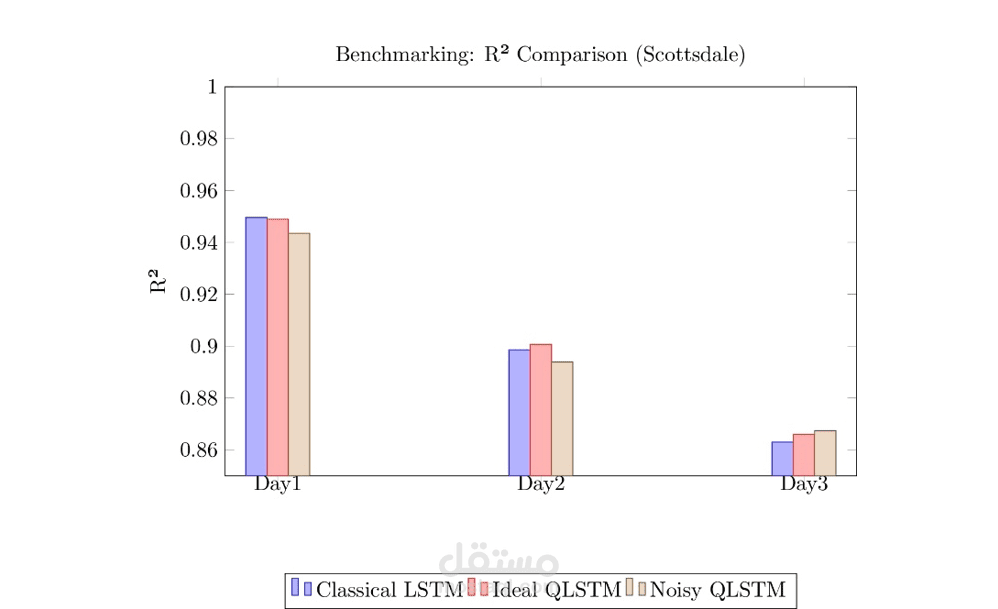Heatwave Forecasting Using Quantum Machine Learning
تفاصيل العمل
Heatwaves pose serious risks to public health, infrastructure, and economic stability, mak ing accurate and scalable forecasting methods essential in climate resilience planning. In this study, we explore the integration of quantum computing with classical Long Short Term Memory (LSTM) architectures by evaluating the potential of Quantum Long Short Term Memory (QLSTM) models for improving heatwave forecast accuracy. The QL STM replaces classical neural network gates within the LSTM structure with Variational Quantum Circuits (VQCs), potentially leveraging quantum advantages such as parame ter efficiency and richer feature mapping. Meteorological data from multiple global sta tions—including Cairo, Riyadh, Phoenix, Scottsdale, London, and Barcelona —is col lected, processed, and used for heatwave forecasting under two configurations: pre dicting the next day using three days of historical data, and predicting the next three days using seven days of input data. Based on preliminary evaluations, the second config uration is further explored, as it demonstrated stable performance and practical relevance for operational heatwave forecasting. The performances of classical LSTM and QLTSM are investigated for both configurations for the data collected on the mentioned cities to evaluate the generalizability of our approach under varying temperature dynamics and climate volatility. IBM’s quantum hardware simulator is used for the QLSTM, and the model is tested under realistic noise settings to assess its hardware readiness. Our results indicate that QLSTM models achieve comparable, and in some cases slightly stronger performance metrics relative to classical LSTM models, despite using significantly fewer trainable parameters. This demonstrates their potential efficiency and robustness in cap turing nonlinear temperature patterns within constrained computational resources.
